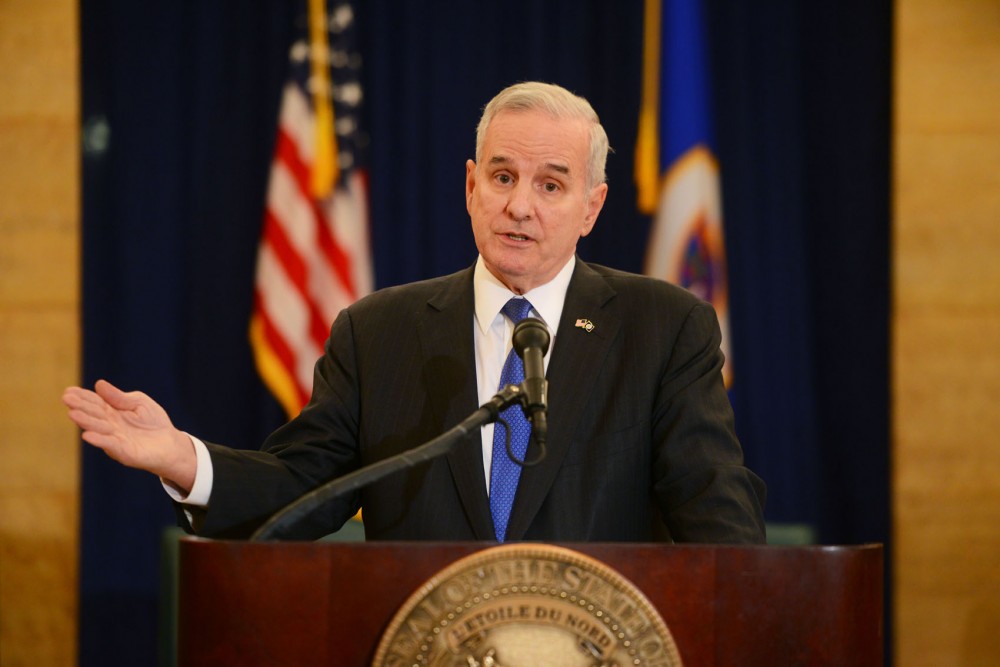The University of Minnesota has plans for student-focused initiatives but wants the state to fund them — and already that plan has run into a snag.
While the University requested $22 million from the state Legislature for programs, like more funding for STEM, expanded admissions programs for minority students and a new system-wide Student Success Center tasked with helping students graduate on time, Gov. Mark Dayton recently recommended that the school receive $2.6 for those initiatives.
Lawmakers in the House and Senate have yet to release their recommendations.
LeAnn Melin, assistant dean for the office of undergraduate education, said in an email statement no changes have been made to the plan since the Dayton made his recommendation.
“The governor’s budget recommendations are just the beginning of the process to set the state budget,” she said. “We will work actively with the legislature and the governor in support of our full request.”
Increasing graduation rates at the center could also cut down on student debt, said University President Eric Kaler.
If approved in May, the University will base the bulk of the center’s methods on the school’s Center for Academic Planning and Exploration, said Robert McMaster, vice provost and dean of undergraduate education.
CAPE was created as a small-scale pilot in 2009 to help students declare and switch majors, McMaster said.
“Over the last few years, we’ve kept a lot of data on CAPE. We’ve seen its success…We thought this was a very logical place to invest resources,” he said.
Melin — who also serves as CAPE’s director — said only three full-time and three part-time employees work at CAPE. Funds from the budget would be used to hire more personnel to address demand at the center.
“We’ve been able to show great success, and the demand for the services, it’s always tough for us to keep up with the student demand,” she said.
McMaster said while CAPE is the focus of the Student Success Center, it will also address much more.
The Center would expand to address the issues of transfer students, as well as provide opportunities like internships and study abroad to students of color and those with low-incomes, he said.
“We…can expand CAPE and that would be wonderful, and I think we can do really good work with that,” Melin said. “But, there’s also the opportunity [to] expand CAPE to be something a little bit broader and more integrated to support student success.”








